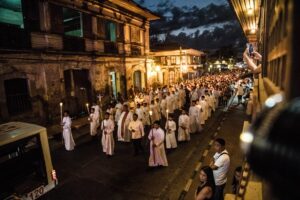As we commemorate Philippine Independence Day, we look back on the bravery of our national heroes—chief among them, Dr. Jose Rizal, whose pen proved mightier than the sword. But more than a martyr immortalized on coins and statues, Rizal was a visionary—restless, radical, and remarkably ahead of his time.
If he were alive today, what would Rizal be fighting for?
Beneath the romanticized image of the national hero was a man deeply concerned about social justice, national identity, and human dignity. More than a century after his execution at Bagumbayan, the issues he once wrote about remain hauntingly relevant.
Here are five causes Rizal would likely champion if he were among us this Independence Day:
1. Education That Liberates, Not Just Informs
Rizal believed that education was the foundation of freedom. He wrote, “The school is the book in which is written the future of the nation.” He wouldn’t settle for rote memorization and standardized tests. Instead, he would demand an education system that fosters critical thinking, civic responsibility, and equal access for all—from urban centers to remote barangays.
If Rizal were alive today, he might be lobbying for increased funding for public schools, internet access in far-flung provinces, and a curriculum that includes more local history, Filipino values, and global literacy.
2. Honest Governance and an End to Corruption
Rizal’s novels painted a searing critique of those in power—from abusive friars to greedy officials. Fast forward to today, and he would likely be just as outraged by political dynasties, corruption scandals, and unfulfilled campaign promises.
Rizal would not stay silent. Expect open letters, essays, and interviews demanding public accountability. He would challenge not just individual leaders, but the entire system that enables impunity.
In today’s world, Rizal wouldn’t just be trending on social media—he’d be testifying at Senate hearings and calling out government waste, fake news, and the slow wheels of justice.
3. Justice for the Marginalized
While Rizal is often remembered as a refined intellectual, he was also deeply empathetic to the struggles of the poor and voiceless. He denounced the abuse of power and the indifference of the privileged.
Today, Rizal would be standing with informal settlers, farmers without land, Indigenous communities, and victims of human rights violations. He would write against violence, not just in the streets, but in the silence of neglect. His activism would be intersectional, inclusive, and fierce.
4. A Stronger Sense of Filipino Identity
Rizal feared a future where Filipinos would forget who they were. He fought to restore national pride and cultural integrity in a time of colonization.
In the age of globalization, he would remind us to embrace our local languages, support our artists, and value our history. Rizal would not be against change, but he would argue that we must know where we came from before we rush to be like the rest of the world.
He’d likely be supporting independent Filipino films, writing thought pieces on historical amnesia, and calling for museums and cultural centers in every province.
5. A Free and Responsible Press
Rizal wielded the pen like a weapon. As a journalist and editor of La Solidaridad, he knew the power of stories to awaken a people.
In today’s climate of disinformation and media intimidation, Rizal would be a strong defender of press freedom. But he would also call for responsibility and truth in journalism, condemning both censorship and sensationalism.
In the age of blogs, vlogs, and clickbait, Rizal would likely have his own fiercely written Substack or YouTube channel—focused on deep analysis, history, and courageous commentary.
A Hero Still Relevant
If Rizal were alive today, he might be called a “troublemaker.” He might be red-tagged, misquoted, and criticized. But like in his own time, he would not fight against the Philippines—he would fight for a Philippines worthy of its people’s sacrifices.
This Independence Day, let’s honor Rizal not just with ceremonies or floral wreaths—but by continuing the battles he would still be fighting.
Because the fight for freedom didn’t end in 1898. It’s still happening—in classrooms, communities, and conversations.
And Rizal would want us to be part of it.




